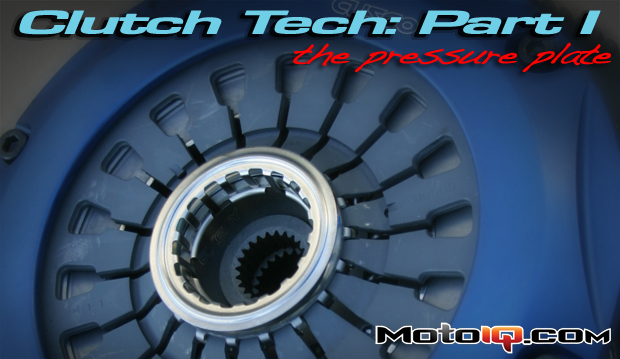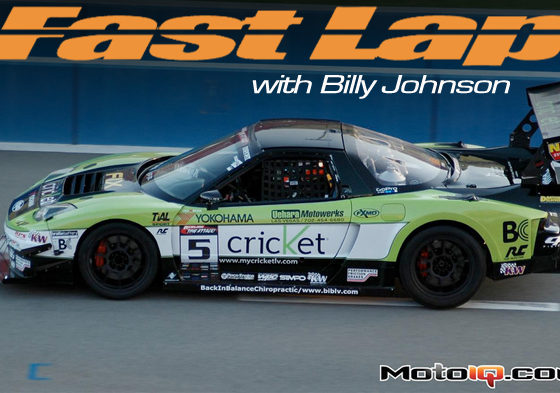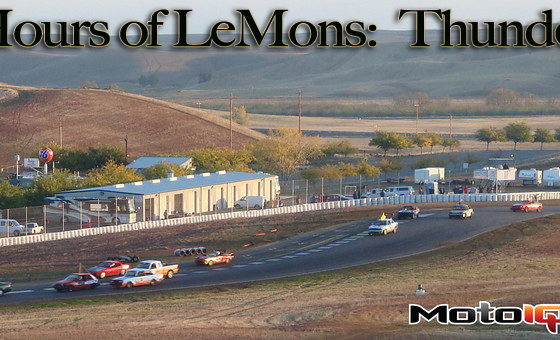Clutch Tech Part One: The Pressure Plate, Get a Grip!
By Mike Kojima
 | ||
| Drifting heaps brutal abuse on the clutch like no other motorsport. Powerful engines, launches out of the hole, long burnouts and clutch kicks to initiate a drift can rapidly kill a clutch not up to snuff. |
Ever wonder what is perhaps the second most important thing that makes your car move? You probably guessed that the engine is the most important thing. The clutch is the second part of the equation, the part that couples the engine to the ground. Although it is the most critical component in your drivetrain, most enthusiasts have very little idea of how a clutch works, what are important attributes when selecting a clutch and how to pick the right clutch for their application. The right choice will get you moving and keep you moving reliably. The wrong choice may destroy itself, quickly wear out, not work according to your expectations and worse yet, break other parts on your car.
How do you choose the right clutch and how does a clutch work? There is very little information available on this subject as a clutch is not as sexy as a 1100 hp B-series motor, nor is it shiny and out for all to see like an exhaust system. To get some help on this subject, stay tuned and we’ll help guide you through the subject in the next couple of installments of this series.
 | ||
| Drag racing is very brutal on clutches as well, big power, burnouts, launches from high rpm and fast shifting are difficult for a clutch designer to accommodate. |
Not to offend anyone by being too simple, but starting from the very basics, a clutch is needed because a car’s engine is always spinning even when the car’s wheels aren’t. A clutch is the device that couples the engine to a manual transmission. The clutch is a direct coupling that will hopefully solidly lock the engine to the drive wheels under power and decouple the engine from the wheels when stopping, starting and shifting. This obviously is a very important and difficult job. The clutch should engage with a smooth and progressive action so the car is easy to drive smoothly without judder and stalling from a standing start. Smoothness also helps to keep the stress off of the transmission and differential when shifting. The clutch should also hold the engine’s power under any load when engaged without slipping. The best clutch for this normally is the stock clutch. However, this all goes out the window when you modify your engine and drive a car in competitive events.
With today’s technology, modifications such as forced induction and nitrous make it possible to double, triple or even quadruple your car’s stock-rated horsepower. This is fine to go fast but there is no way your poor stock clutch is going to be up to that task. Your stock clutch was not designed to do repeated drag launches, consistent shifts from redline and other tortures that enthusiasts place on them.
 | ||
| Track driven highly modded street cars pose unique problems for clutch designers. These cars must cope with the power of highly modded engines under race like conditions but still must remain streetable for daily use. |
The clutch has to absorb a tremendous amount of abuse and heat, especially when doing drag racing starts and speed shifting. Doing clutch kicks to initiate a slide in drifting is also incredibly punishing to a clutch. Road racing means many high rpm shifts for long periods of time. Even slipping the clutch to carefully creep your racecar on the trailer to take it home after the races is extremely hard on a clutch.
How do you know that your clutch isn’t up to snuff? The main indicator is common sense. Just installed a 100 shot of NOS? Have you just finished eagerly installing your turbo kit? I can tell you right now that your stock clutch won’t last long and chances are as soon as you push the “too soon junior button”, you’ll hear the engine rev with no increase in acceleration and a horrible burning smell to match. Not sure what was up with that, so heck try it again, and your clutch will probably really be toast the second time around.
What do you do now? Well fear not, there are heavy duty clutches made for nearly every compact car on the market and if not, there are a few companies that specialize in making custom clutches to solve your problems. The trick is picking the right clutch for you. Sit back and listen, I’ll explain some of the ins and outs of clutches to help you decide. Let’s first look into the basic construction of a clutch starting with the most basic of its parts.





1 comment
Do you stock Heavy duty pressure plate for a e46 330d m57 D1
2002 model
High clamp force